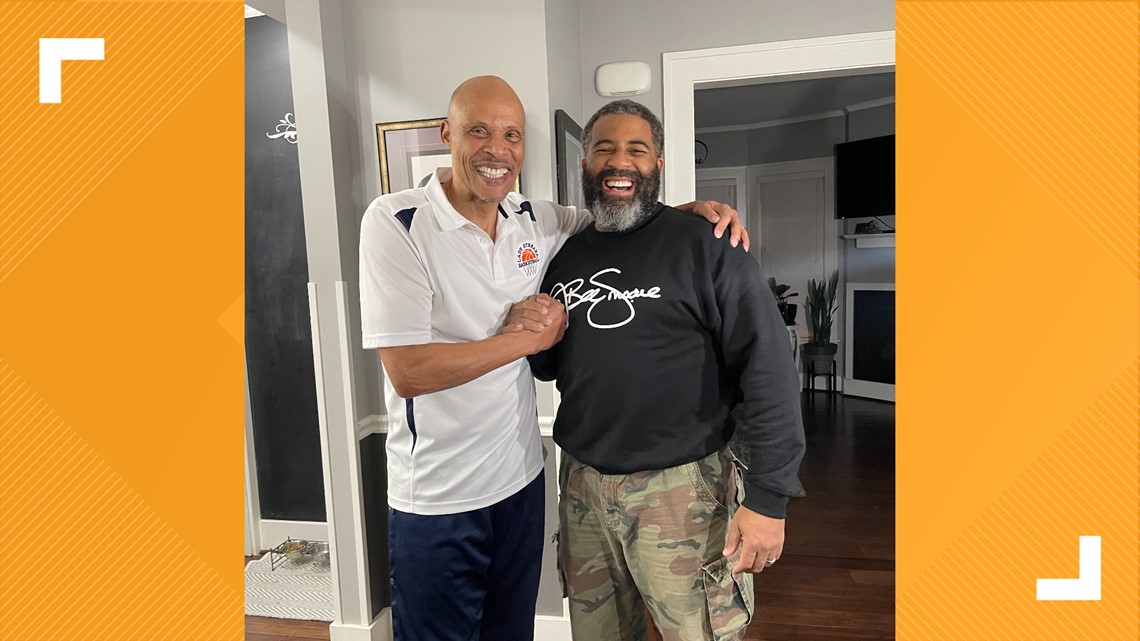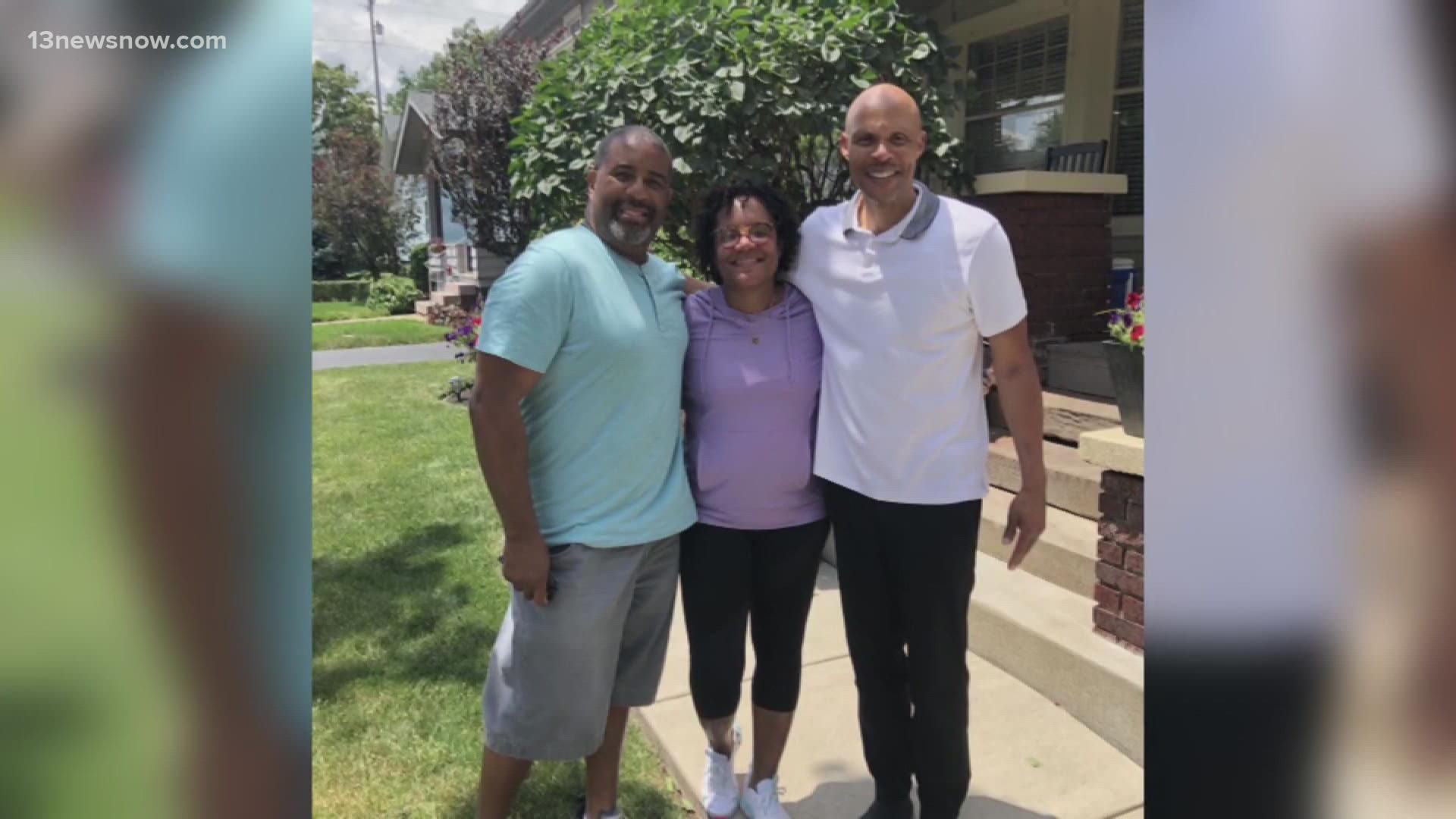NORFOLK, Va. — Two Norfolk State University alumni are now forever connected.
The bond between Dr. Richard Koonce and Steve Robinson began as students in the early 1990s.
"We were both non-traditional students, and we really hit it off," said Koonce.
The pair met while bartending to pay for college and soon became roommates.
After graduation, the friends kept in touch, but life took them separate ways. Robinson, an independent graphic designer, eventually settled down with his family in Teaneck, New Jersey.
Koonce, a former journalism professor at Norfolk State, now works for Sandusky Public Schools in Ohio.
They hadn’t seen each other in more than 20 years, until Robinson's wife, Natalie, suggested they visit Koonce during a family trip last year.
“We really picked up where we left off," said Koonce.


But something was different.
Koonce, though donning his hallmark smile, had lost a lot of weight. Doctors diagnosed him with primary sclerosing cholangitis, a rare, chronic liver disease that attacks the bile ducts.
“I said, 'Listen, man, I have this liver disease I've been battling for a couple of years,'" Koonce recalled telling Robinson.
Koonce said he'd been misdiagnosed years prior, but the condition worsened. He had dropped more than 60 pounds and even contracted COVID at one point.
Doctors told him the disease increased his risk of cancer. Robinson, who originally signed up for a deceased donor, opted for the living donor process, instead.
But he needed a donor.
Though they hadn’t seen each other in decades, his old roommate did not think twice.
“I mean literally right after I told him, he said 'I gotta do something,'" said Koonce.
Robinson said his heart dropped upon hearing about Koonce's diagnosis. He recently lost another friend from Norfolk State who died of lung disease. Robinson felt he needed to help.
"It’s going to save his life but it’s going to help me as well," said Robinson.
With the blessing of his family and after learning he and Koonce shared the same blood type, Robinson volunteered to be a donor.
Last week, the two reunited again: this time for an organ transplant surgery at the Cleveland Clinic. They went under the knife on Valentine’s Day, which Robinson says is fitting given Koonce's role in his love story.
“The life I have I have to say is because of him," said Robinson. "He introduced me to my wife, Natalie. We have three beautiful kids."
Koonce knows Robinson’s gift is not only life-saving but rare.
The U.S. The Department of Health and Human Services Office of Minority Health says Black Americans make up the largest group of minorities in need of an organ transplant, and the number of Black donors who give while they’re living is 10 times less than those who are white.
In 2020, the number of transplants performed on Black people was less than 30 percent of the number of Black people waiting for a transplant, according to the HHS.
“This brother is giving me an opportunity to lengthen my life," said Koonce.
Both Koonce and Robinson describe themselves as men of faith and credit divine intervention to bringing them back together and making this happen.
“I know through that act how much that brother loves me," said Koonce.
Though disconnected for years, it’s safe to say, from now on, where Koonce goes, Robinson will too.
“That’s what HBCUs foster," said Robinson. "They foster love, unity, and lifelong bonds.”
Robinson and Koonce are currently recovering in Ohio.
February 14, the day of their surgery, is also National Donor Day.

